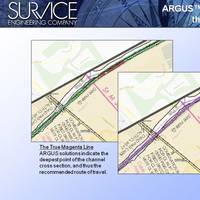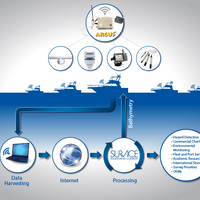CSB: Chemical Leak Caused Fire at ITC Houston Terminal

The U.S. Chemical Safety Board (CSB) said on Wednesday that a fuel leak, possibly due to open valves and a running pump, set off a massive blaze at a Mitsui & Co Ltd petrochemical storage operation along the Houston Ship Channel in March.The fire that began on March 17 at Intercontinental Terminals Co (ITC) spread black smoke across Houston, shut the nearby ship channel, slowed production at local oil refineries and closed roadways and schools as it spread from one giant storage…
U.S. House: Chemical Safety Board in Disarray
The U.S. Chemical Safety Board is in disarray and has struggled to finish investigations into serious accidents at chemical plants and refineries that in one case killed seven people, according to a draft report by two Congressional committees. The report, prepared by the House Committee on Oversight and Government Reform and the Committee on Science, Space and Technology, said CSB Chairman Rafael Moure-Eraso and two other officials have created an "abusive and hostile work environment" at the board's offices. The report, seen by Reuters, will be issued later Thursday. As a result, experienced investigators have left, according to the report, and delayed probes such as the one into the 2010 explosion at Tesoro Petroleum Corp's refinery in Anacortes, Washington, that killed seven.
ARGUS & Sailing the NOAA's 'Magenta Line'

SURVICE Engineering respectfully suggests that the magenta line is a prime example of “other” valuable uses for ARGUS data in its current form, beyond reconnaissance and its future potential use for nautical charting. ARGUS is a patented (U.S. Patent 8,417,451), autonomous, crowd source bathymetry (CSB) system that provides automated acquisition and processing of CSB data. Originally demonstrated as part of a NOAA research grant, the system consists of a compact, automated…
ARGUS: Enviable Technology, Unlimited Potential
System is designed to universally interface with a vessel’s existing navigation equipment and autonomously deliver water depths seen by the vessel to a central server. Almost four years and 100 million soundings later, the concept is a reality. Almost two years after we first reported (December 2011 edition of MarineNews) on an innovative, depth sounding recorder device that made wide swaths of data available to perhaps anyone who wants it, the concept envisioned by ARGUS has developed into a viable tool that could change the way that government agencies schedule surveys and dredging. Today, about 40 boats have voluntarily placed on board their vessels the ARGUS (Autonomous Remote Global Underwater Surveillance) system transmitters.
Underwater Survey System Patented

The U.S. Patent and Trademark Office has issued a patent for the ARGUS™ (Autonomous Remote Global Underwater Surveillance) system. The purpose of ARGUS™, which has been in operation and field testing since 2010, is to automate the acquisition and processing of depth, environmental, and meteorological data from coastal and inland waterways and provide the data to Government, commercial, academic, and other interested organizations. The autonomous onboard system (without the need…
CSB Still Investigating Deepwater Horizon Spill
The following statement was released from U.S. Chemical Safety Board Chairman Dr. On the one-year anniversary of the Deepwater Horizon oil rig accident I would like to take this opportunity to remember the 11 workers who were killed as a result of this catastrophic explosion and fire. We also wish to express our condolences to the families and coworkers whose lives will be forever impacted. The CSB’s investigation of this accident continues to examine a number of critical offshore oil and gas process safety issues. Currently CSB investigators are focusing on evaluating physical evidence, including participating in the first phase of the blowout preventer testing.
FAST Program Achieves Successful Critical Design Review
Atlas Elektronik UK, with its Atlas-QED consortium partners ITT Corporation (formerly EDO Corporation) and QinetiQ, has achieved a successful Critical Design Review of a mine counter measures (MCM) flexible agile sweeping technology (FAST) technology readiness demonstrator (TRD), in line with the main program schedule. The demonstrator, which is being supplied under contract, will ultimately enable the MoD to put a combined influence sweep (CIS) replacement into service using FAST Technology. This latest milestone follows an Interim Design Review in September 2007. With the build phase well underway, the program remains on track to achieve the target of readiness for formal trials later this year.
FBM Babcock Marine Makes New Appointments
FBM Babcock Marine Ltd has appointed Nick Pearson as commercial manager and Craig Patrick has joined the company as sales manager for commercial vessels. Nick Pearson has joined FBM Babcock Marine from Three Quays Marine Services where he was business development manager. He is a Master Mariner who has spent his career in the marine industry, working with P&O, Stena Line, SWATH International and Samsung Heavy Industries. He brings with him a wide experience in the high-speed craft industry and will be responsible for FBM Babcock Marine's sales team and commercial operations. Craig Patrick has joined FBM Babcock Marine from Maritime Dynamics where he was their sales manager.
MOUs to Govern Investigations
In December of last year, the National Transportation Safety Board (NTSB) and the US Chemical Safety and Hazard Investigation Board (CSB) stated that the two agencies had signed a Memorandum of Understanding providing that the NTSB would be the lead agency for investigating transportation-related accidents involving the processing, handling, or storage of a chemical substance that result in death, serious injury, or substantial property damage. The CSB is an independent, scientific investigatory agency (not a regulatory or enforcement body) created by the Clean Air Act Amendments of 1990, whose mission is to promote the prevention of major chemical accidents at fixed facilities.





